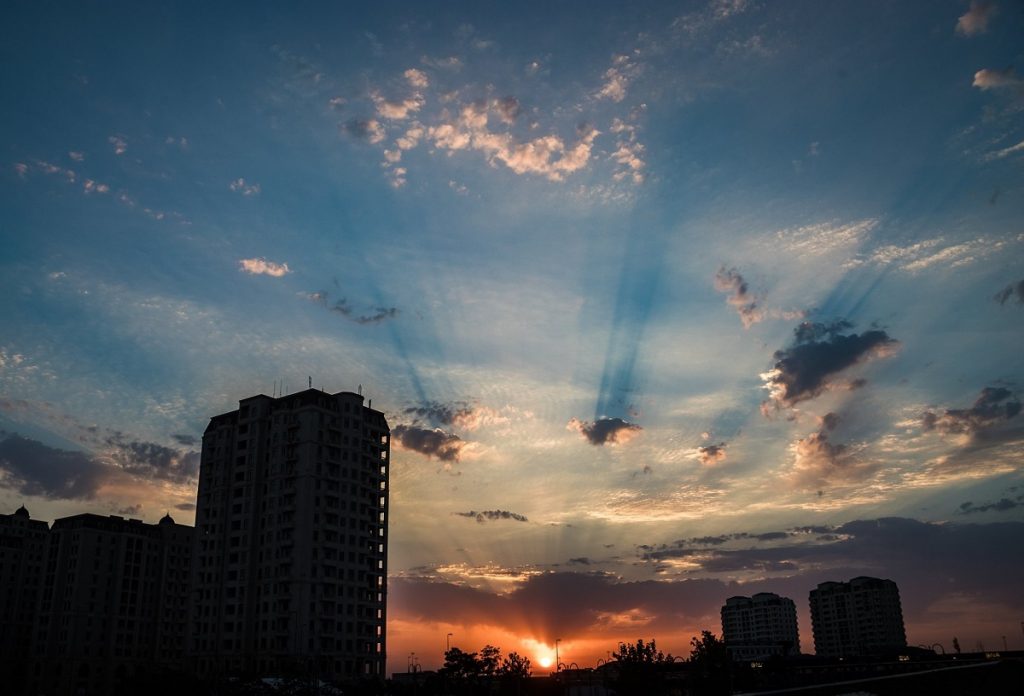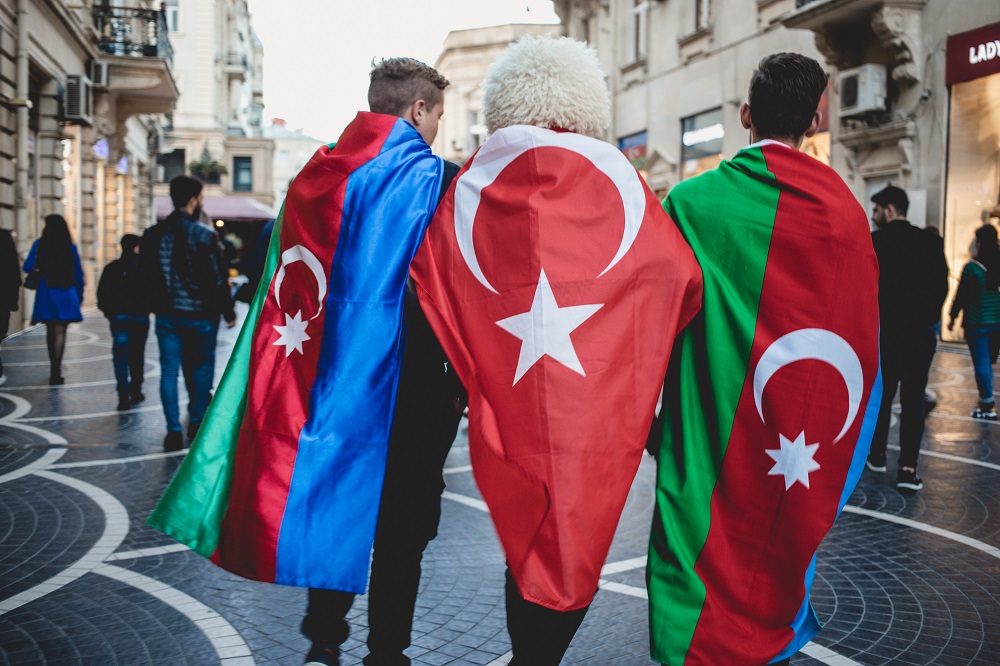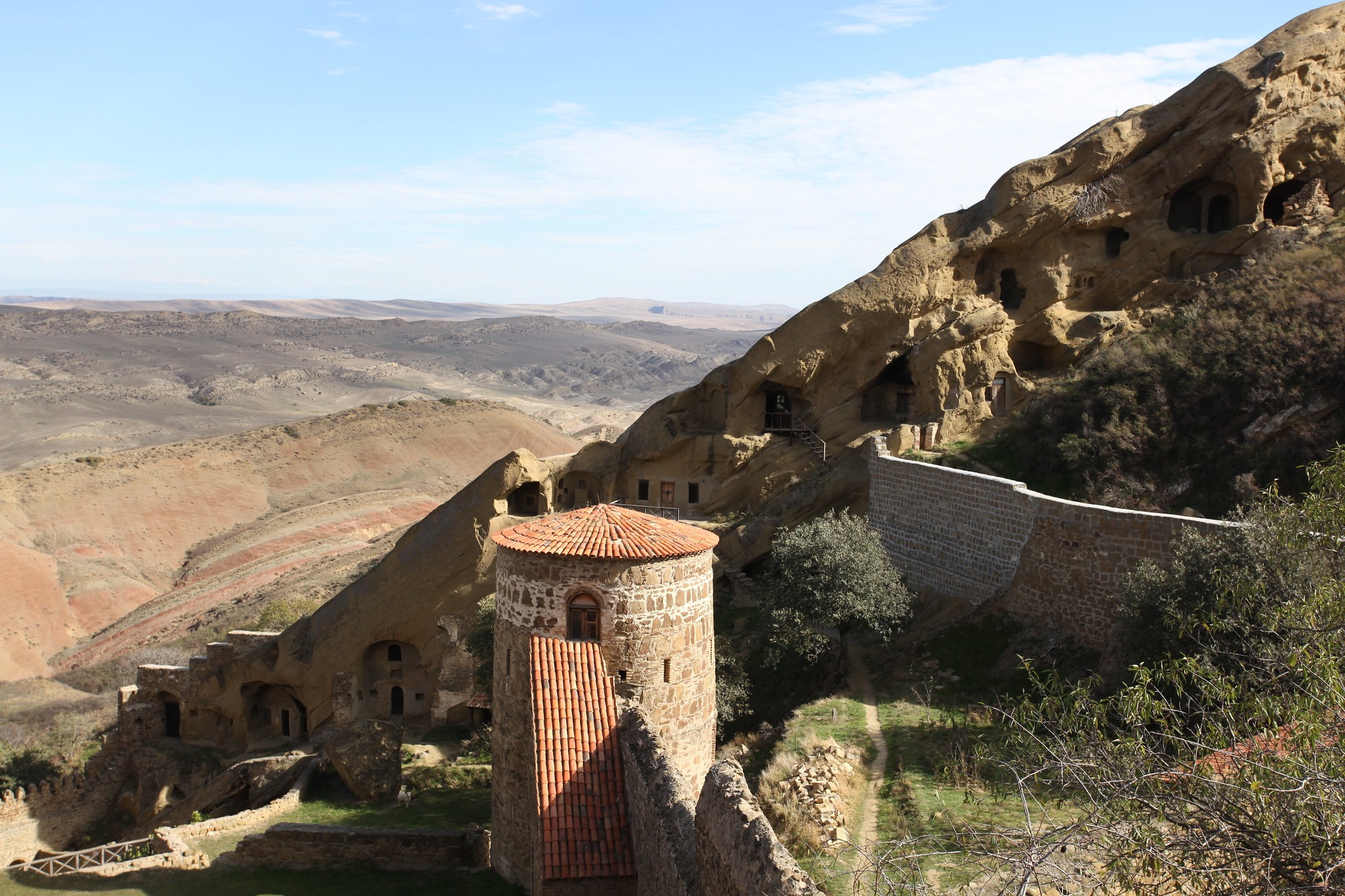Georgia, Azerbaijan and Turkey: a new military alliance on the horizon?
On February 18, Baku will host the ninth meeting of the foreign ministers of Georgia, Turkey and Azerbaijan.
What will the ministers discuss? What are the prospects for transit routes through Georgia? Or maybe a new military alliance is on the horizon? Comments from Baku and Tbilisi.
- Creation of new transport corridors linking Armenia, Azerbaijan, Russia begins
- Why are Azerbaijan and Turkey holding joint military exercises on the Armenian border?
- Op-ed – Russia-Turkey: geopolitical war, or competitive partnership?
Interest in the region has been perked by the prospects of transit for oil, gas and transport routes connecting Azerbaijan and Turkey through the territory of Georgia.
Under the terms of the recently signed Karabakh truce, new transport lines between Turkey and Azerbaijan must pass through Armenia.
“After the new transport routes start operating in the region, the laws of the economy will come to the fore. The parties will decide how and from where shipping and transit is more profitable,” former Azerbaijani FM Zulfugarov told JAMnews.
Zulfuqarov says that cooperation between Azerbaijan, Georgia and Turkey is notable for the fact that there is no dominant side here: “All three sides benefit from these transit routes, and there is no need to talk about superiority.”
A new military alliance on the horizon?
“Azerbaijan and Georgia have long been cooperating in political terms within the framework of the GUAM organization. The rapprochement of these countries was also facilitated by similar problems with the occupation of the territories of these states,” the ex-foreign minister emphasized.
He also noted that Turkey plays an important role in Georgia’s aspirations to join NATO: “Georgia has been trying for a long time to become a member of the Atlantic Alliance, and NATO forces are often held in this country. In all these events, Turkey plays, if not even the main, but one of the main roles. For this reason, Turkey is, as it were, the main link for Georgia in relations with the West.”
“As for the military component of cooperation between Turkey, Georgia and Azerbaijan, the armed forces of these three countries have conducted exercises on the protection of trunk pipelines several times. In other words, there is such experience. Other formats of such cooperation are also not ruled out in light of the results of the second Karabakh war,” Zulfuqarov added.
Commentary from Tbilisi
Georgian commentator Paata Zakareishvili says Georgia has not yet come up with any initiative of its own in connection with the critical events around Karabakh: “And not because someone ousted it from this space. Therefore, it is very good that the most strategically promising alliance in the South Caucasus – Turkey-Georgia-Azerbaijan – is being activated.”
“There is some tension between Georgia and Azerbaijan over the David Gareji monastery [disputed territory on an undivided section of the border – JAMnews]. There is also some level of Islamophobia in Georgia. Perhaps these issues are not officially on the agenda of the meeting of the foreign ministers in Baku, but I think that there will be talk about them. We are talking about the state border, this is a matter of the sovereignty of the two countries. Most likely, Turkey is also informed about this context,”Zakareishvili said in an interview with JAMnews.
“But if I were defining the agenda, I would say that the main topic of this trilateral format should be the future of NATO in the South Caucasus. Both states – Turkey and Azerbaijan – conduct ‘Eastern diplomacy’ with Russia: they are restrained and benevolent, but they take a principled position. It is Turkey’s policy not to annoy the other player, but at the same time continue to act as you think is right. And it has proven itself well in the context of the Nagorno-Karabakh conflict,” he added.
The expert noted that one should not expect an open confrontation between Turkey and Azerbaijan with Russia: “I am sure that for Turkey its initiative to create a security platform [with the participation of Russia] will be a matter of principle. Georgia, instead of trying to oust Russia, may propose a format change. For example, instead of a single platform of five players, there may be two- or three-party groups that will work on the concept of security in the region. And Russia will not participate in several of them.
“Georgia can act as a driving force here”
Georgia has the right to speak harshly about Russia because it has occupied Georgian territories. Therefore, Georgia can act here as a driving force that will offer these parallel formats of work only with Azerbaijan and Turkey, but not with Russia.
Another task in the solution of which Georgia can greatly help is to become a mediator in the Armenia-Azerbaijan and Armenia-Turkey formats. It is obvious that Europe is not particularly interested in participating in the processes in the Caucasus, the Karabakh events have shown this very well. This is bad, but it is reality. In such a situation, Georgia could act as the player who will help create a single Caucasian circle.
This could be a Caucasian alliance where Armenia’s sovereignty will be protected. No one will question its territorial integrity, and Armenia will be involved in a common Caucasian concept, where it will show its dignity and its capabilities.
There are other areas where Georgia can show initiative. So far no steps have been taken in this direction. Maybe it will happen at this meeting.”





















